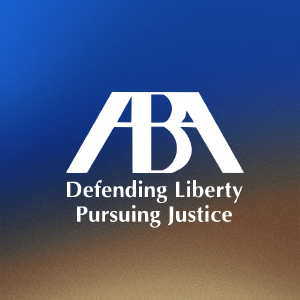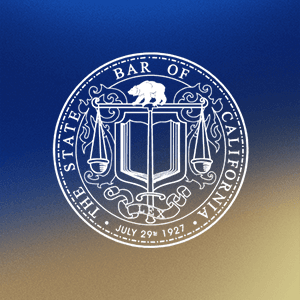
Los Angeles Manslaughter Defense Lawyer
Aggressive Murder Defense Lawyers Serving Los Angeles, CA
A type of criminal homicide, manslaughter may be charged as a misdemeanor or a felony under California Penal Code. Generally speaking, it is defined as killing another person without malice aforethought or premeditation. Manslaughter charges may stem from unintentional yet negligent acts or in situations where a person responds in the "heat of passion" to sufficient provocation. Depending on the classification of the charges and the circumstances surrounding the case, a defendant may face anywhere from 2 to 11 years in state prison if convicted of manslaughter.
Representing defendants throughout the greater Los Angeles area, we at Stephen G. Rodriguez & Partners are committed to helping those who have been arrested for and accused of manslaughter and other violent crimes. We understand how serious these matters are and respond with equally serious criminal defense counsel to protect our clients' constitutional rights to the fullest extent.
Here we will consider manslaughter charges under California law:
- Voluntary Manslaughter: As defined under California Penal Code §192(a), voluntary manslaughter is the unlawful killing of another person without malice, "upon a sudden quarrel or heat of passion." For example, a man who came home to find his wife in bed with another man may face voluntary manslaughter charges if he is accused of killing both in a fit of sudden rage. The act was not premeditated and was committed without malice aforethought, making manslaughter charges a possibility. Penalties may include up to 3, 6 or 11 years in prison and a fine of up to $10,000.
- Involuntary Manslaughter: Under California Penal Code §192(b), involuntary manslaughter is defined as the unlawful killing of another person without malice, "in the commission of an unlawful act, not amounting to a felony; or in the commission of a lawful act which might produce death, in an unlawful manner, or without due caution or circumspection." Thus, killing another person during the commission of a misdemeanor crime (even if accidental) or killing another person in the performance of a lawful act that might produce death, a person may face involuntary manslaughter charges. The intent to kill is not required in these charges. A famous example of an involuntary manslaughter case involved the conviction of the doctor who prescribed a surgical anesthetic to pop star Michael Jackson, eventually leading to his death. Penalties may include up to 2, 3 or 4 years in prison and a $10,000 fine.
- Vehicular Manslaughter: This type of manslaughter is defined in California Penal Code §192(c). A person may face vehicular manslaughter charges for unlawfully killing another person without malice, while "driving a motor vehicle in the commission of an unlawful act, not amounting to a felony, and with gross negligence; or driving a vehicle in the commission of a lawful act which might produce death, in an unlawful manner, and with gross negligence." Vehicular manslaughter charges may also apply without gross negligence, and in cases involving intentionally causing an accident for the purposes of committing financial fraud (insurance fraud). An example may be a person who is texting while driving and runs a red light, striking and killing a pedestrian. Vehicular manslaughter may be charged as a misdemeanor punishable by up to one year in county jail, or as a felony punishable by up to six years in state prison.
Legal Defenses to Manslaughter Charges
The legal defenses to manslaughter charges often depend on the specific facts of the case. Here are the most frequently employed defenses:
- Self-Defense or Defense of Others: One of the most common defenses to voluntary manslaughter is that the defendant was acting in self-defense or in defense of another person. For this defense to succeed, the defendant must prove that they reasonably believed they or someone else was in imminent danger of being killed or seriously injured, they used only the amount of force necessary to prevent the harm, and the force used was proportional to the threat they faced. In situations where excessive force was used but the threat was real, the charge may be reduced to manslaughter from a more serious charge like murder.
- Accident: If the defendant can demonstrate that the killing was purely accidental and occurred without criminal negligence, this defense can be a valid strategy for fighting involuntary manslaughter charges. To succeed, the defendant must show that they were engaged in lawful activity, they were not acting with negligence or recklessness, and they did not intend to cause harm. For example, if someone accidentally causes another’s death while acting in a generally safe manner, this defense may apply.
- Insufficient Evidence: The prosecution must prove beyond a reasonable doubt that the defendant committed manslaughter. A defense attorney may argue that there is insufficient evidence to support the charge. This could involve challenging witness testimony, forensic evidence, or other aspects of the prosecution’s case to create reasonable doubt about the defendant’s guilt.
- Lack of Intent: For voluntary manslaughter, which involves a killing done in the heat of passion, the prosecution must show that the defendant intended to kill or cause serious bodily harm. If the defense can demonstrate that the killing was accidental or that there was no intent to cause harm, the manslaughter charge may not hold. For example, a lawyer might argue that the death was an unintended result of an altercation where the defendant never meant to inflict deadly harm.
- Provocation: Provocation can serve as a defense to voluntary manslaughter if it can be shown that the defendant acted in the heat of passion after being provoked. To succeed, the defense must demonstrate that the provocation was sufficient to cause an average person to lose self-control and the defendant acted immediately after being provoked without time to cool down. This defense could lead to a reduction of a murder charge to manslaughter or could be used to mitigate a voluntary manslaughter charge.
- Duress: Duress is a defense in cases where the defendant was forced to commit a criminal act under the threat of imminent harm to themselves or others. While this defense is not commonly used in manslaughter cases, it may be relevant in cases where the defendant was coerced into committing the act under a threat of serious harm or death.
- Diminished Capacity or Mental Impairment: If the defendant was suffering from a mental disorder or impairment at the time of the killing, it could serve as a defense or as a factor to reduce charges. For example, someone who was not fully aware of their actions due to a mental health issue, intoxication, or trauma may use this defense to argue that they did not possess the requisite intent or state of mind for a manslaughter conviction. While voluntary intoxication generally does not excuse criminal conduct, it can sometimes mitigate the defendant's liability, especially in voluntary manslaughter cases.
- Necessity: The necessity defense can apply in cases where the defendant committed the killing to prevent a greater harm. The defendant must prove that they reasonably believed their actions were necessary to prevent a greater evil, they had no reasonable legal alternative, and the harm avoided was greater than the harm caused by their actions. While necessity is a rare defense in manslaughter cases, it may arise in situations where the defendant believes their actions were required to avoid an immediate danger.
- Heat of Passion: In voluntary manslaughter cases, the defendant may argue that they acted in the heat of passion after a significant emotional event, such as witnessing infidelity or being provoked in a violent confrontation. This defense focuses on reducing a murder charge to manslaughter rather than eliminating liability altogether. The defense must show that the defendant was provoked by an event that would cause an ordinary person to act irrationally and the defendant did not have time to "cool off" before the killing occurred.
- Mistaken Identity: A defense attorney may argue that the defendant was wrongfully accused of the crime and that someone else was responsible for the killing. This defense typically relies on alibis, discrepancies in eyewitness testimony, or flaws in the prosecution’s case to show that the defendant was not involved in the incident.
For more information regarding manslaughter charges and to discuss your rights if you have been formally or informally accused of such an offense, call a Los Angeles manslaughter defense attorney at Stephen G. Rodriguez & Partners. We are ready to offer straightforward, knowledgeable insight regarding your options and can fight aggressively to protect your rights in these serious matters.
Client Reviews
-
God Bless you Stephen, wish you all the successes in life.
“Stephen is a great contact and extremely helpful and knowledgeable. I am glad that I was his client in the past. Top lawyer, top man. God Bless you Stephen, wish you all the successes in life.”
-
Don't hesitate to contact them!
“I was referred to this group of Attorneys. I was started with a low cost made arrangements. My case had to do with assault allegations. The case was dismissed they helped me not to loose my daughter to the system.”
-
Never Talk To Police
Know your rights when questioned by law enforcement.
Defend Your Rights -
Learn What To Do When Confronted and Interviewed By The Police
Honest & practical advice during a free initial consultation. Call now to get started!
Read More -
Don't Plead Guilty!
A plea bargain may not be in your favor. Let us help evaluate all of your options.
Learn More









